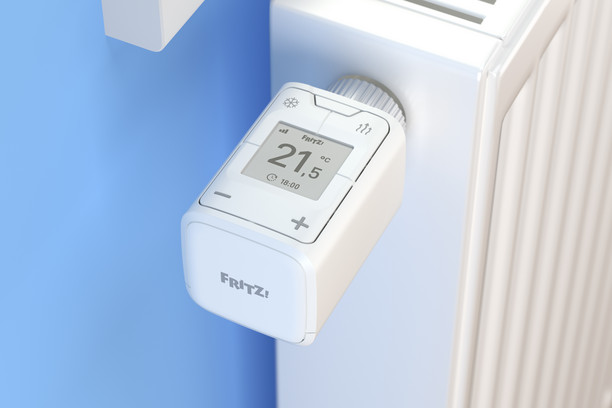Four tips for reducing your heating costs
AVM Content
Gas and energy prices have risen dramatically, making it even more important than ever to heat your home properly to save money. Around 70 percent of household energy consumption is used for heating. Heating your home in a smart and conscious way, ventilating and small investments can all help reduce energy consumption. Read on to find out more.

1. Find the ideal room temperature
Every degree less saves heating energy and thus costs. Depending on your setup, you can save up to six percent in energy per degree and therefore money. In your living room, temperatures between 19 and 21 degrees are ideal. Bathrooms can be a little warmer, between 21 and 23 degrees. while for bedrooms and the kitchen 16 to 18 degrees is enough. However, things should not be colder than 16 degrees, because then the risk of mold increases.
At night and when no one is home, the temperature can be lowered throughout the home. Tip: Turn down the radiator half an hour or an hour beforehand, as it will continue to heat for a while. Again, this helps save some energy. However, you shouldn't cool down your home or certain rooms completely if you'll only be gone for a short while. Getting things heat up again may consume more energy than maintaining a slightly lower temperature at all times.
2. Insulate and draught-proof your home
Keep doors closed - if the door is closed, hardly any heat escapes from the room. Draft excluders for doors also help keep heat in the room. A rolled-up towel can also be used as a draft excluder.
Shutters, blinds or curtains should be closed after dark (or even during the day when rooms are not in use). This reduces heat escaping through the windows by up to 20 percent. In addition, weatherstripping (you can get the strips from your local hardware store) is a tried and tested means of increasing thermal insulation, especially for poorly insulated windows.
3. Keep radiators clear and vent them
Placing furniture and curtains in front of radiators prevents heat from circulating in the room and creates a buildup of heat. For your setup, this means that each radiator should be easy to see. If the radiator does not get warm properly or starts to gurgle, there is probably air trapped in the system, which consumes more energy. With a radiator key, you can easily let the air bubbles out of the radiator yourself.
Also important: keep the radiators clean, as fluff and dust can also reduce heat output.
4. Ventilate properly
The most important rule during the colder months when you have the heating on: open the window wide several times a day to allow the air to circulate instead of keeping the windows open continuously. If possible, open the windows completely for at least five minutes at a time. The lets stale air flow out and fresh air come in without the walls inside your home cooling down.
In addition, the fresh air ensures you have good air quality and reduces humidity, which in turn reduces the risk of mold.
Smart radiator controls for added convenience
A FRITZ!Box with a DECT base station and the FRITZ!DECT 301 and 302 radiator controls are the perfect combination for smart temperature control, helping you save up to 10% in heating costs. In our guide you can find out more about saving energy and money with FRITZ!.
 Deutschland
Deutschland International (English)
International (English) België (Nederlands)
België (Nederlands) Luxemburg (Deutsch)
Luxemburg (Deutsch)